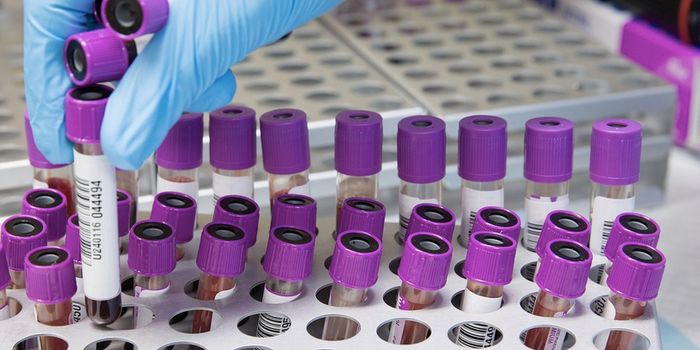How close are we to a simple blood test for Parkinson's Disease?
Parkinson’s Disease (PD) alters nerve cells in the brain that produce the neurotransmitter dopamine. Famously regarded as the “happiness” hormone, dopamine plays several other behavioral and physical functions, including regulating mood, heart rate and movement.
Due to the dysregulation of dopamine’s functions, motor coordination, speech and gait are all compromised in PD patients, with the majority of patients being around 60 years old or older. The disease was first documented by English surgeon James Parkinson in 1817, but 200 years later, we are still in the dark about the molecular events that give rise to PD.
Besides seeking medical attention upon noticing the tell-tale signs of the condition -- tremors, cognitive problems, and issues with balance -- there is no definitive diagnostic test. Affected individuals present with a varied spectrum of symptoms, from motor complications to purely cognitive problems like dementia. Neurologists typically send individuals suspected of having the disease for a battery of tests, from CT scans to physical examinations, none of which provide conclusive answers.
Recently published research funded by the Michael J. Fox Foundation demonstrated the potential for measuring alpha-synuclein levels in the blood as a potential PD diagnostic test. Alpha-synuclein is a protein that is naturally abundant in the brain, thought to play a role in neurotransmitter function, though scientists are still investigating its precise cellular function.
Within the neuron, levels of alpha-synuclein are tightly regulated and undergo a continuous process of degradation and recycling in response to changes in their environment. Patients with neurodegenerative diseases have high levels of an abnormal form of alpha-synuclein, aggregated in clumps called Lewy bodies. This is believed to be due to an imbalance in the delicate balance of alpha-synuclein production and removal, resulting in a pathological accumulation of the protein, as illustrated in the video below.
Alpha-synuclein is also found in the blood, secreted by red blood cells, though its function here, and connection to the onset of neural diseases are still unknown.
To test the hypothesis that circulating alpha-synuclein levels could act as a simple diagnostic biomarker, researchers collected blood samples from 46 PD patients and 45 healthy controls. The patient group was further split into two subgroups: one with patients displaying motor control symptoms, and the other where the symptoms were purely cognitive.
Interestingly, the amounts of alpha-synuclein in the blood samples from individuals with motor symptoms were significantly higher than both healthy participants as well as PD patients with symptoms of dementia.
Does this mean a routine blood test for diagnosing PD is just around the corner? Probably not. The complexity of the molecular players involved and their contribution to the resulting disease symptoms remain a major barrier. However, the accuracy and reliability with which the alpha-synuclein test could identify patients within a subgroup of PD patients were promising. Also, the level of alpha-synuclein correlated well with the severity of disease symptoms, which would be useful for physicians designing personalized treatment interventions.
Sources: Parkinson’s News Today, Annals of Clinical and Translational Neurology.









